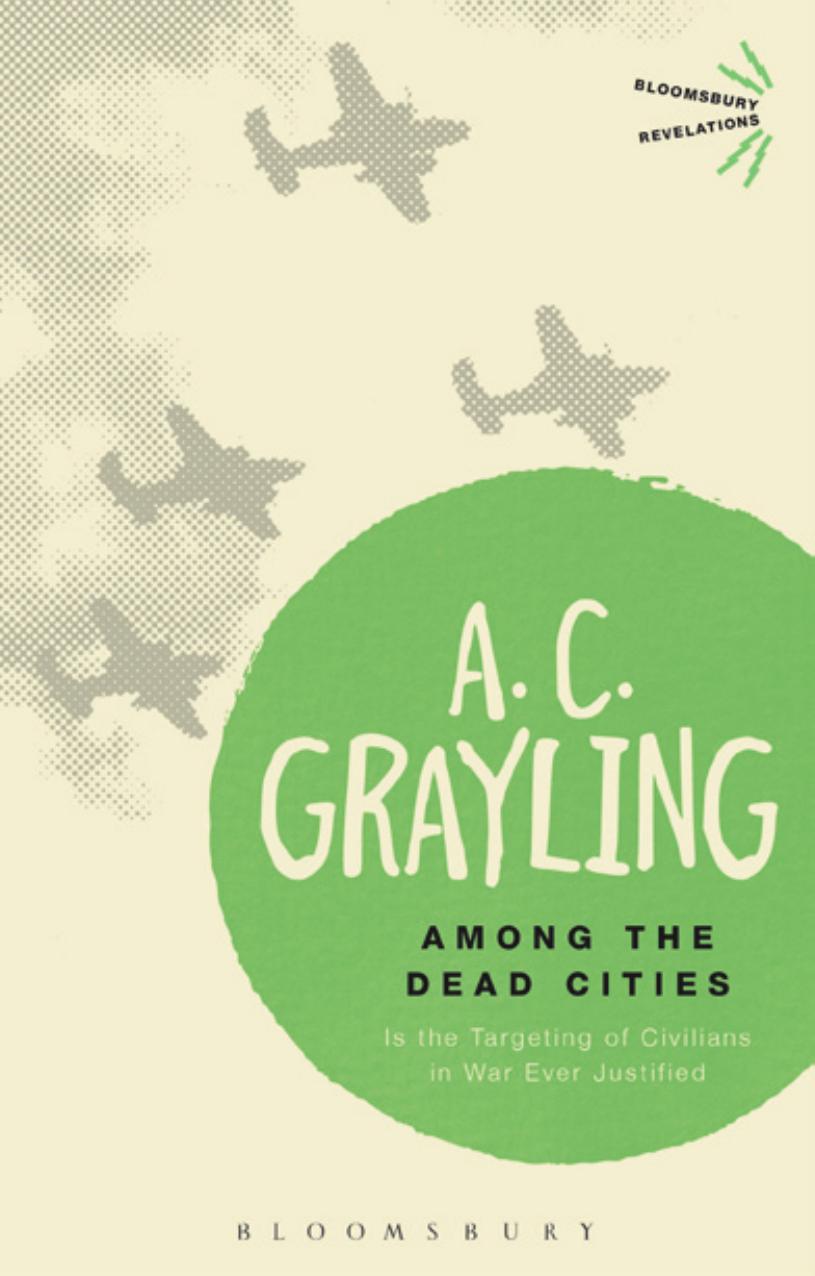Among the Dead Cities: Is the Targeting of Civilians in War Ever Justified? by A. C. Grayling

Author:A. C. Grayling [Grayling, A. C.]
Language: eng
Format: epub, pdf
Tags: Philosophy, Ethics & Moral Philosophy, Political, History, Wars & Conflicts, World War II, General
ISBN: 9781472522771
Google: m_kqAwAAQBAJ
Publisher: A&C Black
Published: 2014-04-24T20:46:42+00:00
Chapter 6
The Case Against the Bombing
To make out the claim that the Allied practice of area bombing in the Second World War was wrong, two things are needful. One is to clarify the sense of âwrongâ at stake, and the other is to measure the facts of the bombing, and the knowledge and intentions of those who planned and directed the area-bombing campaigns, against the relevant principles of ethics and law. Previous chapters have sketched the area-bombing campaigns, their effects, and the background of knowledge and intentions on the part of those who devised and supervised them. Here I set out a case for saying that area bombing was wrong, and that its conductors committed wrong; and I do it by setting out the humanitarian and ethical considerations against which the facts of the preceding chapters are to be judged.
As this last point shows, by âwrongâ here I mean a moral wrong, a violation of humanitarian attitudes and civilised standards of treatment of human beings. In the seminars of philosophers it is easier to find objections, refutations and counter-examples to any proposed definition of morality â and of such associated concepts as âthe goodâ and âright conductâ â than it is to secure general agreement about what any of these fundamentally important notions mean. This is not to claim that we do not know what ârightâ and âwrongâ mean, it is instead an indictment of contemporary philosophy, which has allowed the term âacademicâ in the phrase âitâs only academicâ to mean âempty and futileâ. Once outside the seminar room and confronted with (say) a gang of thugs attacking an old lady, problems of definition evaporate. There are of course major disagreements within any society, and between societies, about fundamental matters of ethics, but there are also fundamental agreements; and it is easy to forget that the major ethical theories of the philosophical tradition, and the major world religions, have more in common on the question of what is good, than otherwise. Suffice it to say that if someone finds nothing wrong per se with dropping a bomb on a house in which unarmed and non-combatant women, children and elderly people are trying to shelter from harm â and leaving aside relevant complexities such as, for example, the possibility that all of the women, children and elderly huddled there are workers in an armaments factory â then that person is not going to get the point of efforts to devise humanitarian rules which protect civilians in wartime, and which thereby embody ethical principles of the kind that this chapter premises.
To anyone of humane and pacific instincts, the phrase âa just warâ looks like a contradiction. But a momentâs thought shows otherwise. The idea that war, however ugly in itself, is sometimes unqualifiedly just is amply demonstrated by the example of Allied opposition to militaristic Fascism in the Second World War, a struggle which provides the focal case of a legitimate use of armed force to defend against aggression and to put an end to oppression and genocide.
Download
Among the Dead Cities: Is the Targeting of Civilians in War Ever Justified? by A. C. Grayling.pdf
This site does not store any files on its server. We only index and link to content provided by other sites. Please contact the content providers to delete copyright contents if any and email us, we'll remove relevant links or contents immediately.
The remains of the day by Kazuo Ishiguro(8981)
Tools of Titans by Timothy Ferriss(8370)
Giovanni's Room by James Baldwin(7332)
The Black Swan by Nassim Nicholas Taleb(7113)
Inner Engineering: A Yogi's Guide to Joy by Sadhguru(6785)
The Way of Zen by Alan W. Watts(6604)
Asking the Right Questions: A Guide to Critical Thinking by M. Neil Browne & Stuart M. Keeley(5764)
The Power of Now: A Guide to Spiritual Enlightenment by Eckhart Tolle(5761)
The Six Wives Of Henry VIII (WOMEN IN HISTORY) by Fraser Antonia(5505)
Astrophysics for People in a Hurry by Neil DeGrasse Tyson(5184)
Housekeeping by Marilynne Robinson(4436)
12 Rules for Life by Jordan B. Peterson(4299)
Double Down (Diary of a Wimpy Kid Book 11) by Jeff Kinney(4261)
Ikigai by Héctor García & Francesc Miralles(4252)
The Ethical Slut by Janet W. Hardy(4246)
Skin in the Game by Nassim Nicholas Taleb(4240)
The Art of Happiness by The Dalai Lama(4125)
Skin in the Game: Hidden Asymmetries in Daily Life by Nassim Nicholas Taleb(3993)
Walking by Henry David Thoreau(3954)
